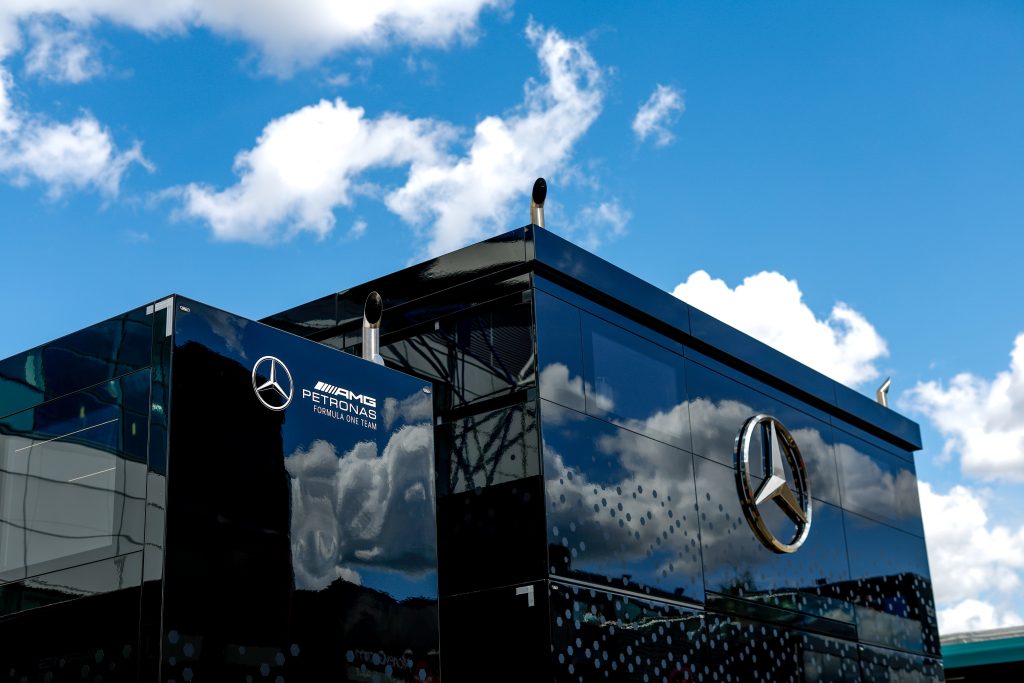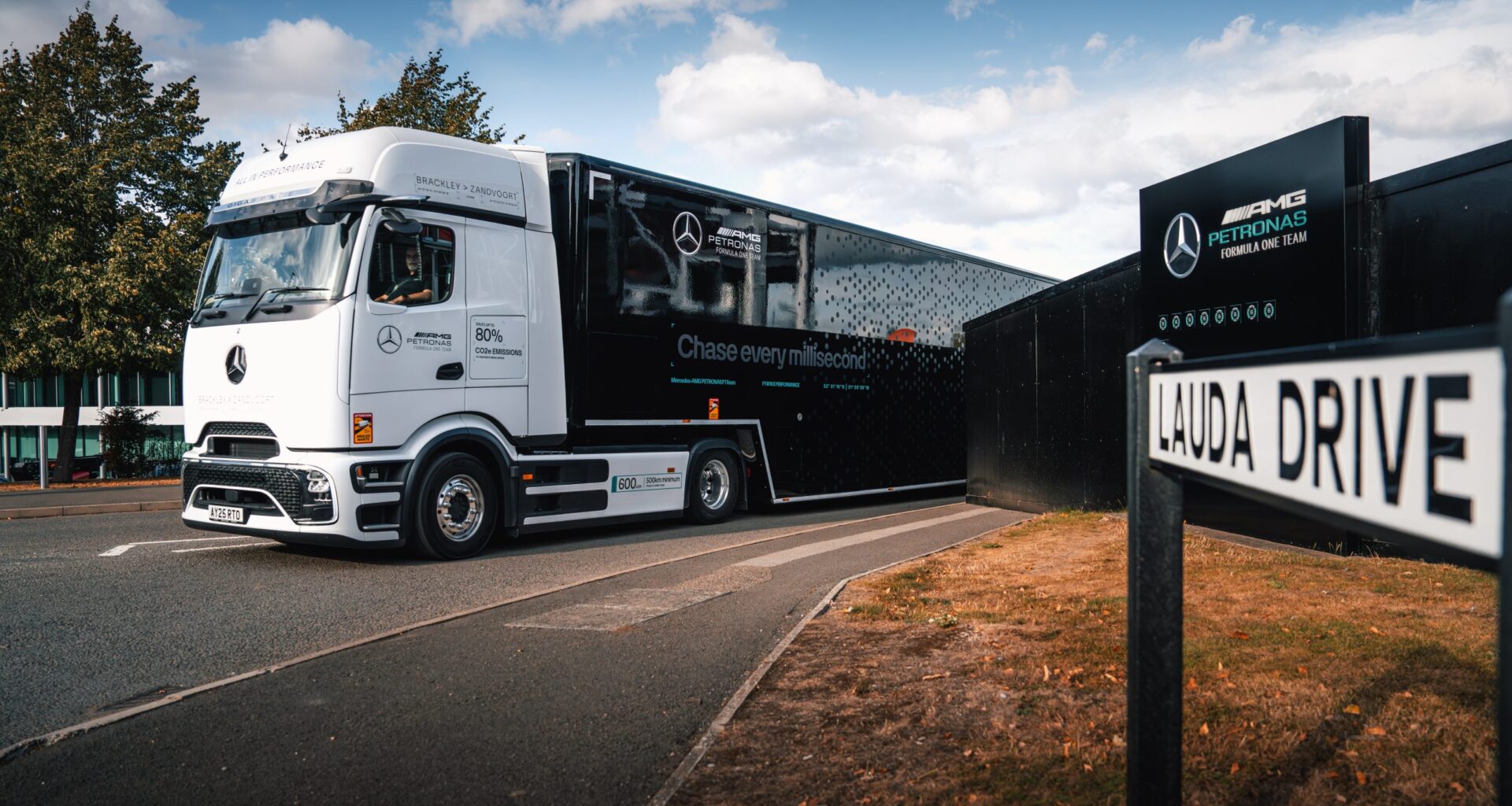The Mercedes-AMG PETRONAS F1 Team is pleased to announce 99% coverage of HVO100 biofuel across the European race and marketing truck logistics this season.
Marking the latest milestone in a journey towards Net Zero and building on success from 2024, the F1 team has been increasing HVO100 coverage in its internal combustion engine (ICE) trucks across the European races since 2022. This year’s programme was again made possible by the continued partnership and commitment of title and technical partner, PETRONAS, and the logistics suppliers.
Since an initial pilot of HVO100 began with a trial during the 2022 season, the F1 team has avoided the emission of over 1,190 tCO2e across its European race and marketing truck logistics.
The team’s long-term ambitions are now to explore HVO100 usage in race locations outside of Europe and extend the use of the Mercedes-Benz Trucks e-fleet across future European seasons, reinforcing the role that Formula One can play as the world’s fastest test lab.

Following a successful pilot at the 2025 British Grand Prix in July, the team completed its first long-distance journey using the all-electric Mercedes-Benz Trucks eActros 600 in August, transporting the current W16 race cars from Brackley, Buckinghamshire to Zandvoort – a 673km journey – for the 2025 Dutch Grand Prix. With rapid charging capabilities, the eActros 600 can reduce lifecycle CO2e emissions by up to 80% compared to a diesel equivalent.
Alice Ashpitel, Head of Sustainability, Mercedes-AMG PETRONAS F1 Team, said,
“Our sustainability strategy is built on innovation on and off the track, and the expansion of HVO100 across 99% of our European season’s race and marketing truck logistics is testament to this. Every kilometre travelled using biofuel moves us closer to Net Zero by 2040, demonstrating our commitment to sustainable high performance. We are proud to be driving change, not just on track, but across every part of our operations. In line with our ambition to become one of the most sustainable global professional sports teams, we are committed to achieving Net Zero for total Race Team Control emissions by 2030 and full Net Zero across all scopes by 2040.”

